Space
Sign up for our newsletter
We summarize the week's scientific breakthroughs every Thursday.
-
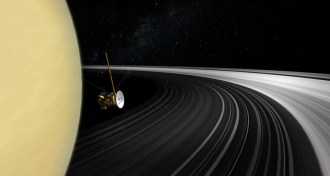 Planetary Science
Planetary ScienceSaturn’s ‘ring rain’ is a surprising cocktail of chemicals
NASA’s Cassini probe got a closeup view of the material falling from Saturn’s rings into the planet. The data could help illuminate the belts’ origins.
-
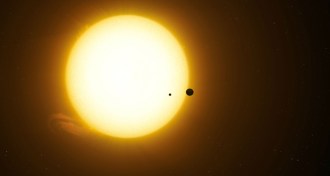 Astronomy
AstronomyHubble may have spotted the first known exomoon
A single sighting with the Hubble Space Telescope seems to confirm that there’s a Neptune-sized moon orbiting exoplanet Kepler 1625b.
-
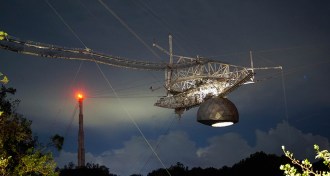 Astronomy
AstronomyWe may not have found aliens yet because we’ve barely begun looking
A new calculation says SETI searches have combed the equivalent of a hot tub out of Earth’s oceans looking for extraterrestrial intelligence in space.
-
 Earth
EarthChristopher Hamilton explores the architecture of other worlds
Planetary scientist Christopher Hamilton uses Earth’s volcanic structures are a blueprint for how lava shapes other worlds.
-
 Astronomy
AstronomyPaula Jofré makes stellar connections
Astrophysicist Paula Jofré is a galactic archaeologist, mapping out generations of stars.
-
 Planetary Science
Planetary ScienceReaders contemplate water on Mars and more
Readers had questions about the significance of finding water on mars, air pollution from wildfires and spray-on sensors.
-
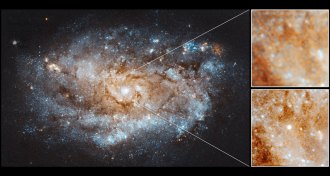 Astronomy
AstronomyAstronomers may have spotted the birth of a neutron star
Scientists say they’ve witnessed a type of neutron star called a pulsar being born in the wake of a massive supernova for the first time.
-
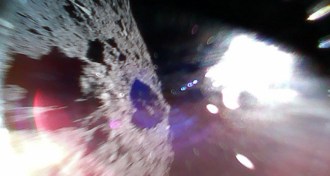 Planetary Science
Planetary ScienceThe first rovers to explore an asteroid just sent photos home
Japan’s Hayabusa2 spacecraft has deployed a pair of rovers to the surface of asteroid Ryugu.
-
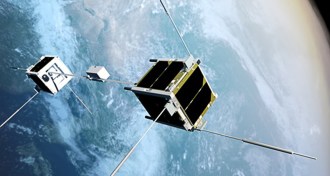 Astronomy
AstronomyJapan has launched a miniature space elevator
The Japanese space agency just launched a prototype space elevator to the International Space Station to test motion along a taut cable in space.
-
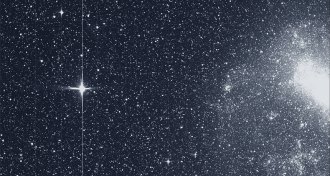 Astronomy
AstronomyThe TESS space telescope has spotted its first exoplanet
TESS’s first exoplanet is twice Earth’s size and may have lots of water.
-
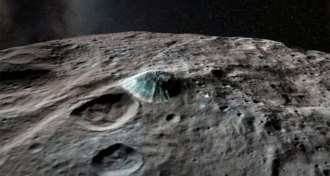 Planetary Science
Planetary ScienceThe ghosts of nearly two dozen icy volcanoes haunt dwarf planet Ceres
The slumped remains of 21 ice volcanoes suggest that the dwarf planet Ceres has been volcanically active for billions of years.
-
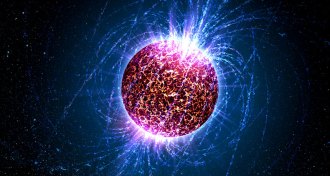 Physics
PhysicsNuclear pasta in neutron stars may be the strongest material in the universe
Simulations suggest that the theoretical substance known as nuclear pasta is 10 billion times as strong as steel.